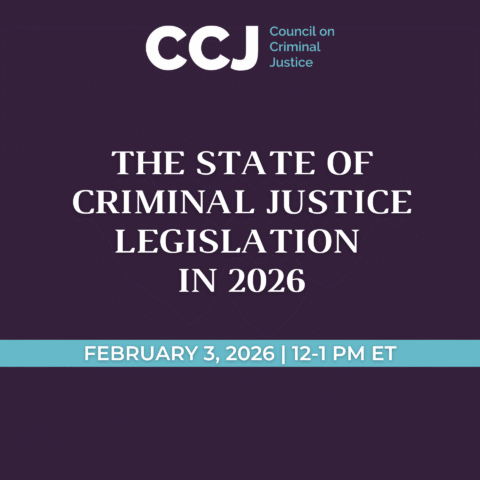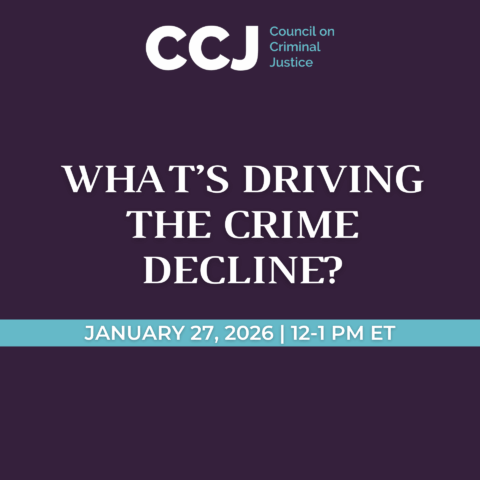At CCJ’s Task Force on Long Sentences’ fifth meeting (June 8, 2022), members reviewed research findings on how court practices and different sentencing rationales drive long prison terms. Dr. Brian Johnson (University of Maryland) provided members with an overview of research on how court practices influence long sentences.
Key Findings from the Presentation
-
- Long prison terms are increasing steadily in most states, reflecting key policy shifts that shape judge and prosecutor decisions.
- Most convictions are the result of plea negotiations, but more research is needed on the role of prosecutors in long sentences.
- Strongest predictors of a long sentence include offense severity and prior record, followed by mandatory minimums, trial conviction, victim injury, and use of firearms.
- Long sentences reflect various punishment rationales, including incapacitation (removing individuals from society), deterrence (penalties leading to lower crime), rehabilitation and redemption, and retribution and justice.
- Key findings on these rationales find that long sentences lead to some (unknown in quantity) incapacitation effect, evidence for marginal deterrence is limited, and sentence lengths are unrelated to post-release recidivism.




